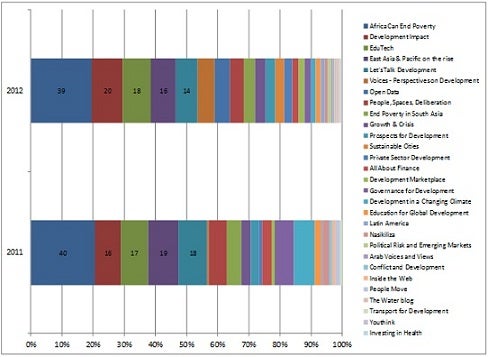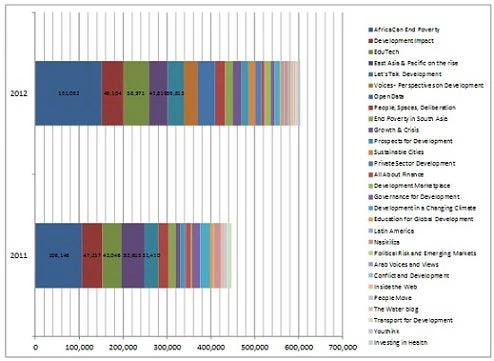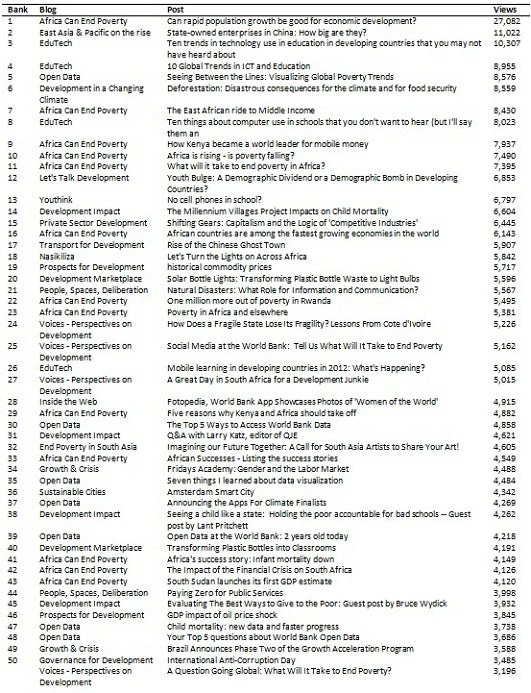Last year I wrote a post listing the most read 100 World Bank blogposts of 2011. I also compared the Bank’s 26 English-language blogs with one another in terms of how many posts they got in the top-200. 2012 was an even more successful year for World Bank bloggers.
Fig 1 compares the Bank’s 29 blogs in terms of their shares of the top-200 posts for both 2011 and 2012. (I excluded pages that didn’t look like posts – blog home pages, blogger profiles, thematic pages, and so on. I may have inadvertently dropped some posts in which case my apologies to the blogger.) Africa Can End Poverty retains the number one slot, accounting for 20% of the top-200 in both years. Development Impact, which started mid-way through 2011, increased its share to 10% in 2012 with 20 posts in the top-200; it now occupies 2nd position. Last year’s runner-up (East Asia & the Pacific on the rise) slipped to 4th position this year, and last year’s #3 (Let’s Talk Development) slipped to 5th position. Open Data, new this year, came in strongly at #7. Voices - Perspectives on Development improved its position considerably, while Development in a Changing Climate slid the other way.
Fig 1: Number of posts among the top-200, 2011 and 2012*
Fig 2 shows the sharp growth of interest in blog posts between 2011 and 2012. The top 200 posts across the Bank notched up 460,000 page views in 2011 but as many as 620,000 page views in 2012. The 40 or so most popular posts on Africa Can End Poverty accounted for 110,000 views in 2011 but as many as 150,000 in 2012.
Fig 2: Page views of the top-200 blog posts, 2011 and 2012*
Table 1 lists the top-100 posts of 2012. Interestingly, three of the top four were also in the top four last year – evidence against the commonly held view that blog posts typically have a very short shelf life. Click here for a longer list containing the top-200 Bank blog posts of 2012.
Table 1: Top-50 World Bank blog posts 2012*
* The period covered is January 1, 2012 – December 3, 2012. Data on views were obtained from Omniture, which apparently gives more precise – and typically lower – page view figures than the Bank’s blogger platform which also gives data on views but only to individual bloggers on their posts.




Join the Conversation